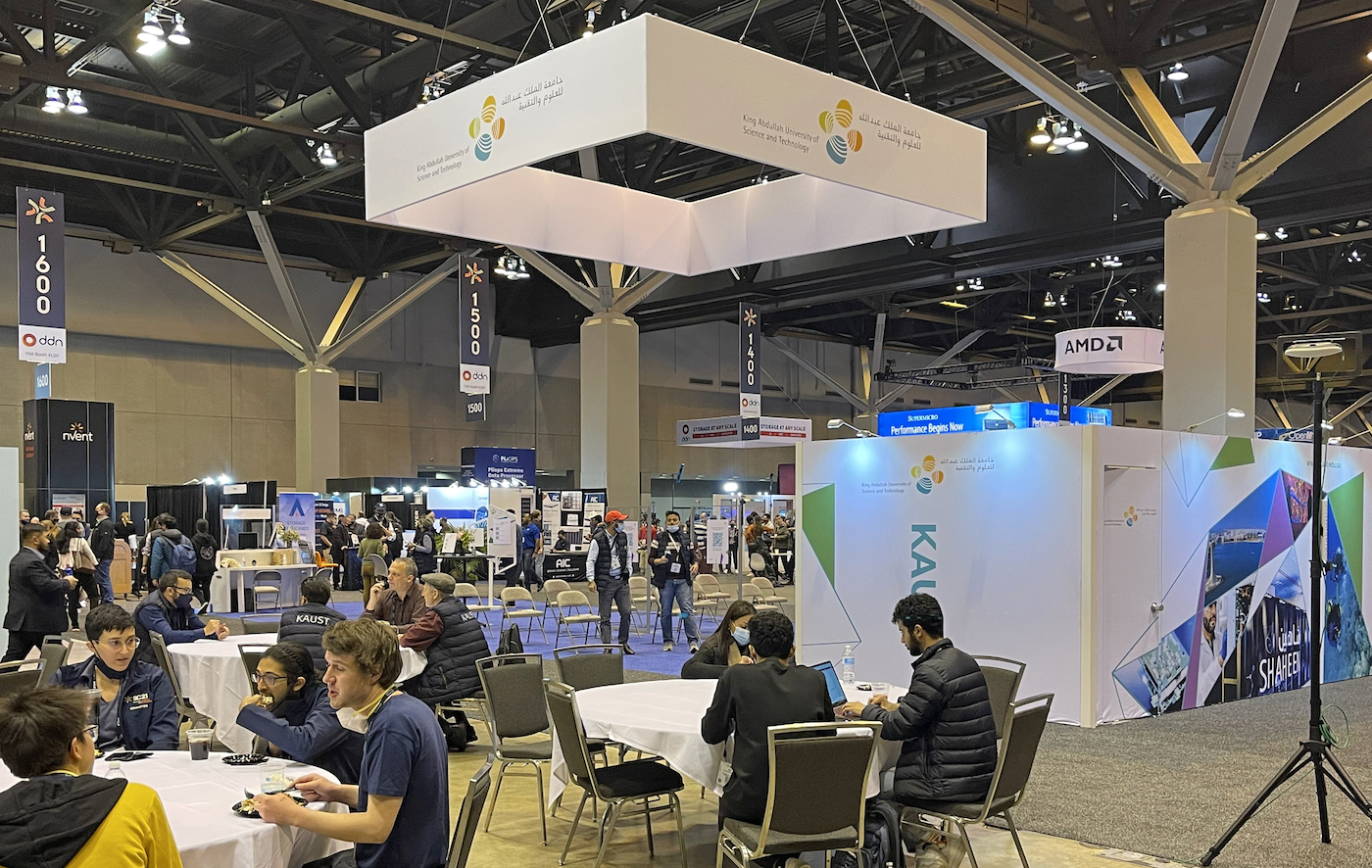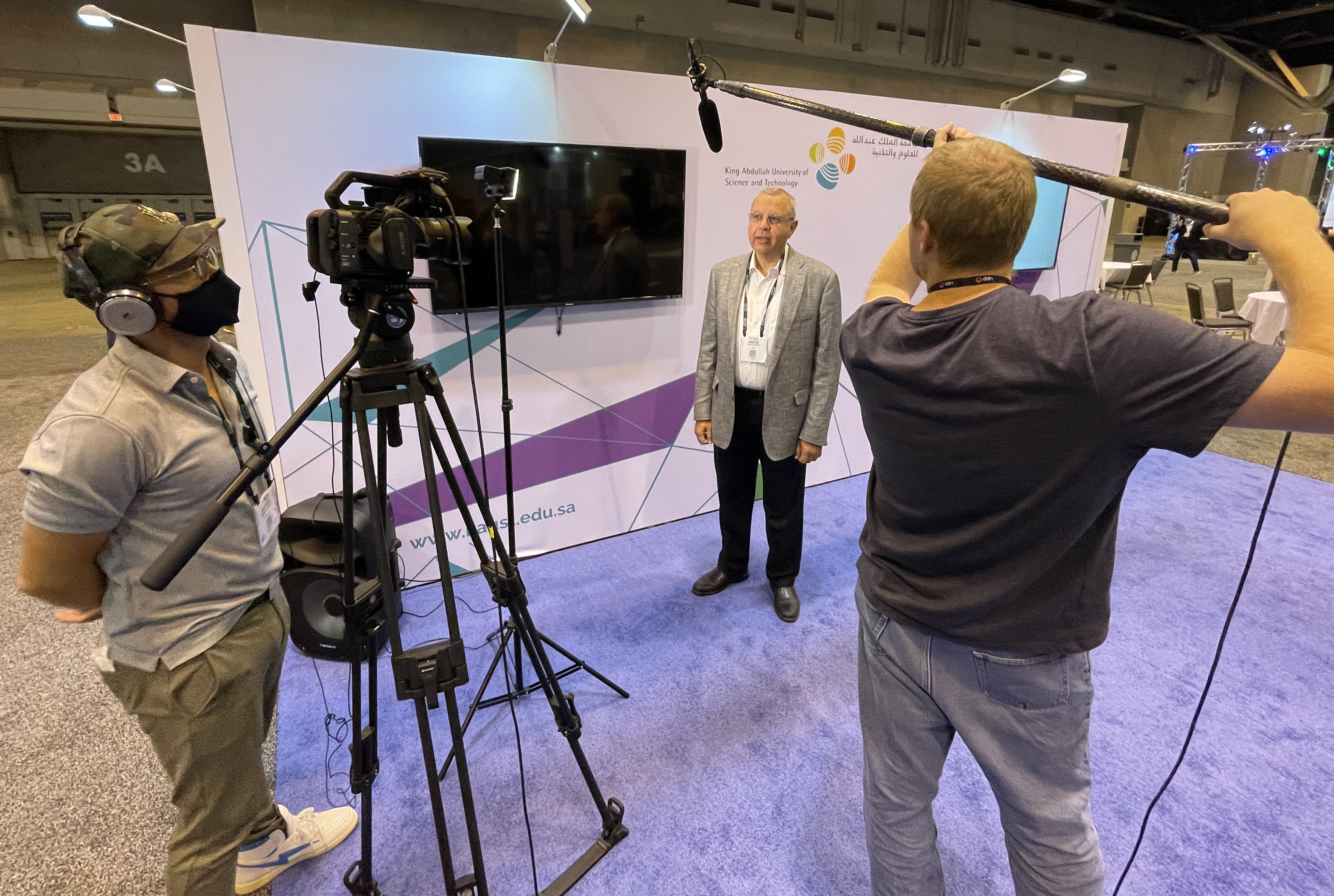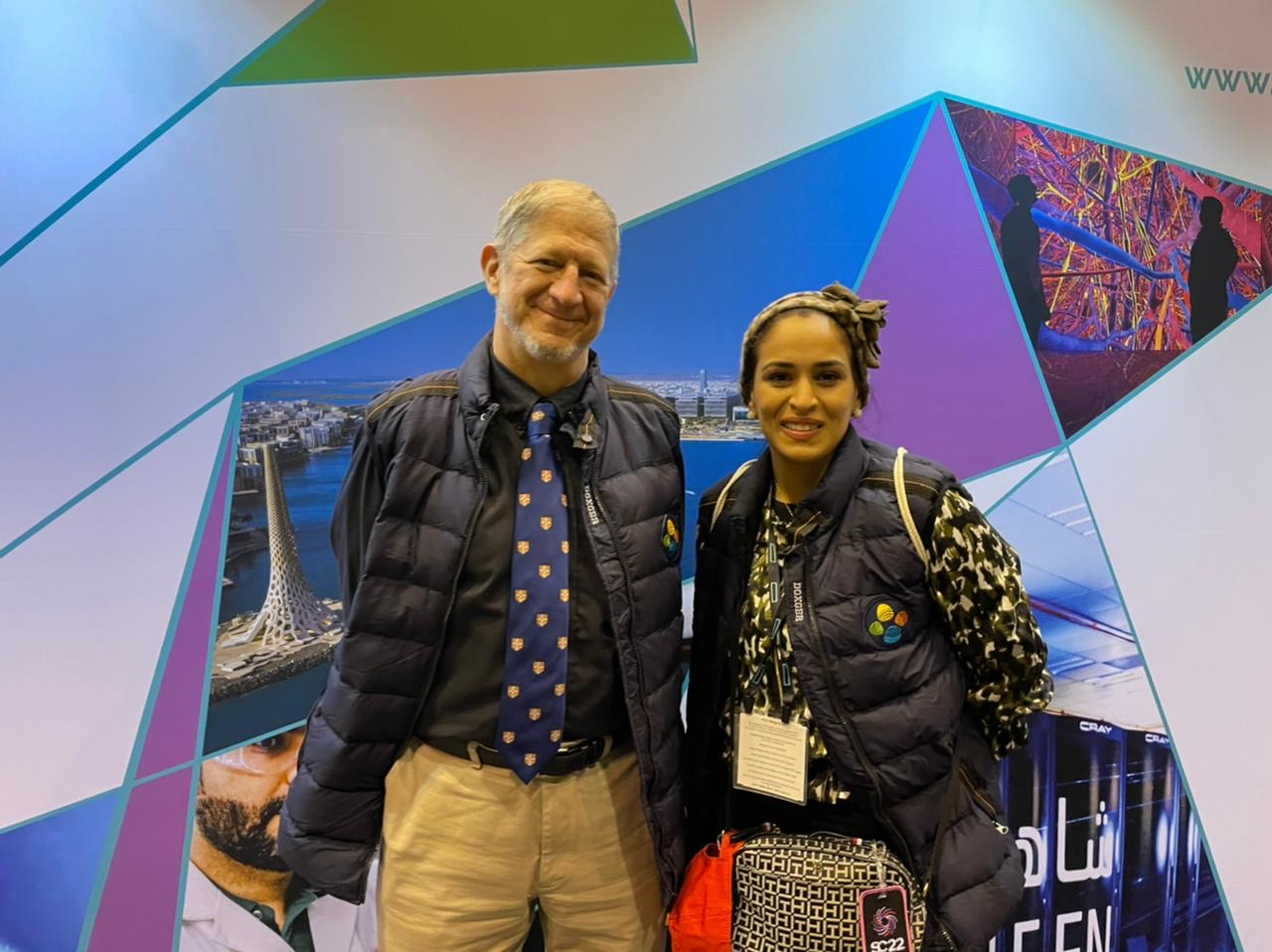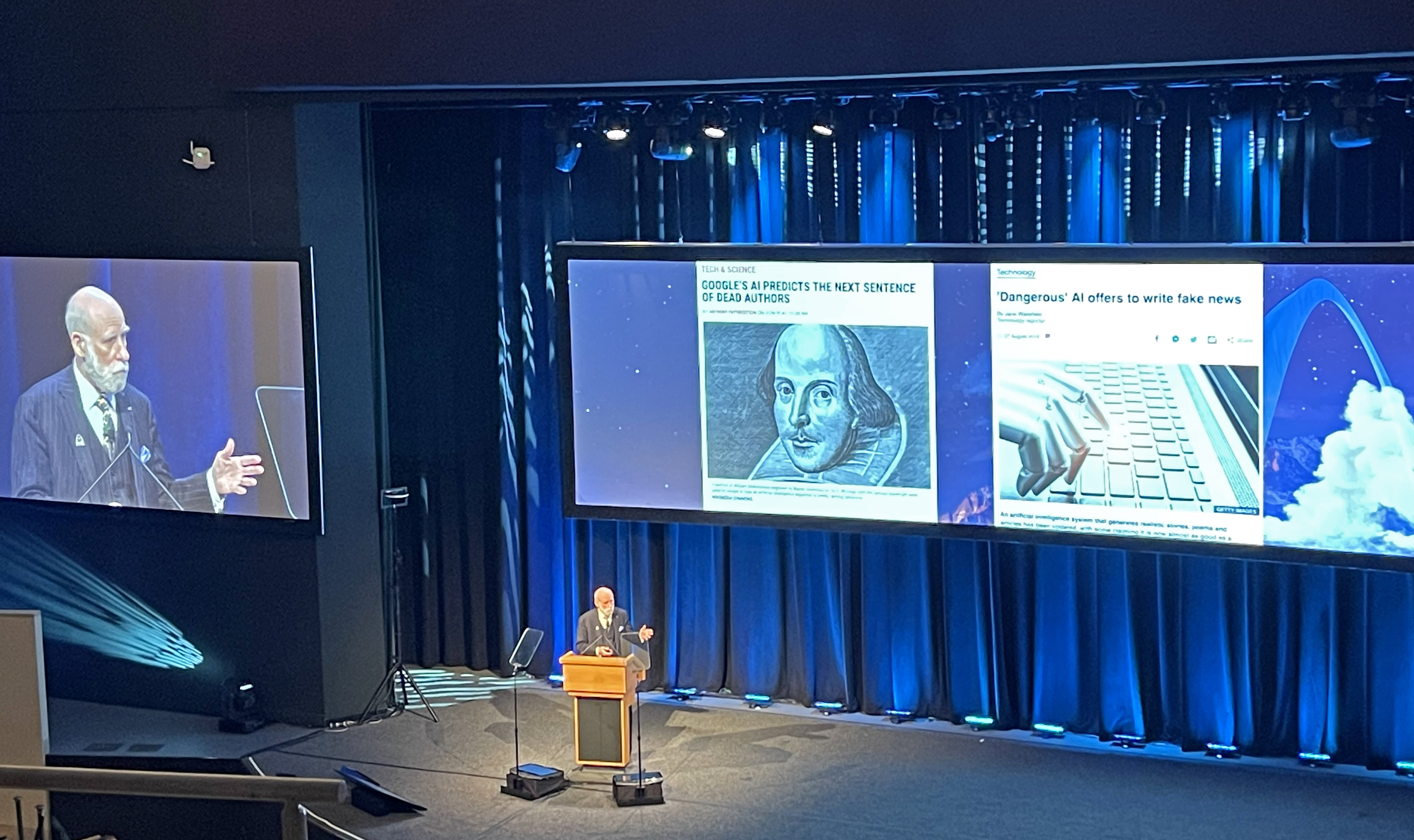KAUST presents exascale expertise at SC21

KAUST was among the exhibitors at the America's Center as part of SC21, the annual international supercomputing conference, St. Louis, Missouri. Photo: KAUST
Supercomputing experts from KAUST converged with global participants at the America's Center in St. Louis, Missouri from November 14 to 19 for SC21, the annual international conference for high performance computing (HPC), networking, storage and analysis.
Established in 1988, the SC conference is the largest HPC event of its kind, with big name industries like Intel, Red Hat and Oracle sharing the exhibition floor alongside universities, government agencies and small businesses, and professionals from various affiliations attending presentations throughout the convention center. In non-pandemic years, attendance typically swells to 13,000. This year's hybrid event drew nearly 4000 people in person.
This is the 13th year that KAUST has attended. The first, in 2008, underscored the university's commitment to be a supercomputing presence in the Arab world before it had formally opened its doors or even acquired Shaheen, its first supercomputer.
Flash forward to today, it's an exciting time for KAUST to be involved in HPC in the Kingdom of Saudi Arabia, as the field is propelling research across a broad range of scientific disciplines. The Middle East now hosts eight supercomputers in the top 500 globally, including the current #10 and former #7 ranked supercomputer — an investment that is fomenting a shift toward a knowledge-based economy and preparing the exascale workforce in the Arab world.

SC21 media crew interview KAUST Professor of Computer Science Mootaz Elnozahy about supercomputing research at KAUST and its influence in the Middle East region. Photo: KAUST
Students are drawn to study supercomputing at KAUST, not only for the caliber faculty and sophisticated hardware available to them, but also for cross-disciplinary exchange and hands-on opportunities to evolve software applications. KAUST graduates are contributing to a "flying embers effect" of talent across the Middle East, landing choice positions in academia, industry and government, and forging new collaborations with KAUST through their jobs.

KAUST Extreme Computing Research Center Director David Keyes with Ph.D. student Rabab Alomairy at the KAUST booth, SC21, St. Louis, MO. Photo: KAUST
Hot topics included:
- Challenges at the extreme scale, with a focus on hardware evolutions and "extreme heterogeneity" driving software advancements.
- Developments at the interface of statistics and supercomputing.
- The rise of computational science in medical advances.
- The expanded use of artificial intelligence in supercomputing applications.

"Father of the Internet" Vint Cerf delivered the keynote address, Computing and the Humanities" at the international supercomputing event SC21 in St. Louis, Missouri. Photo: KAUST
In preparation of SC22 in Dallas, Texas, KAUST Computational Scientist Bilel Hadri will chair the reproducibility initiative. In this role he will review all accepted conference papers for details of their software environments and computational experiments to ensure that any independent person could replicate their results.

